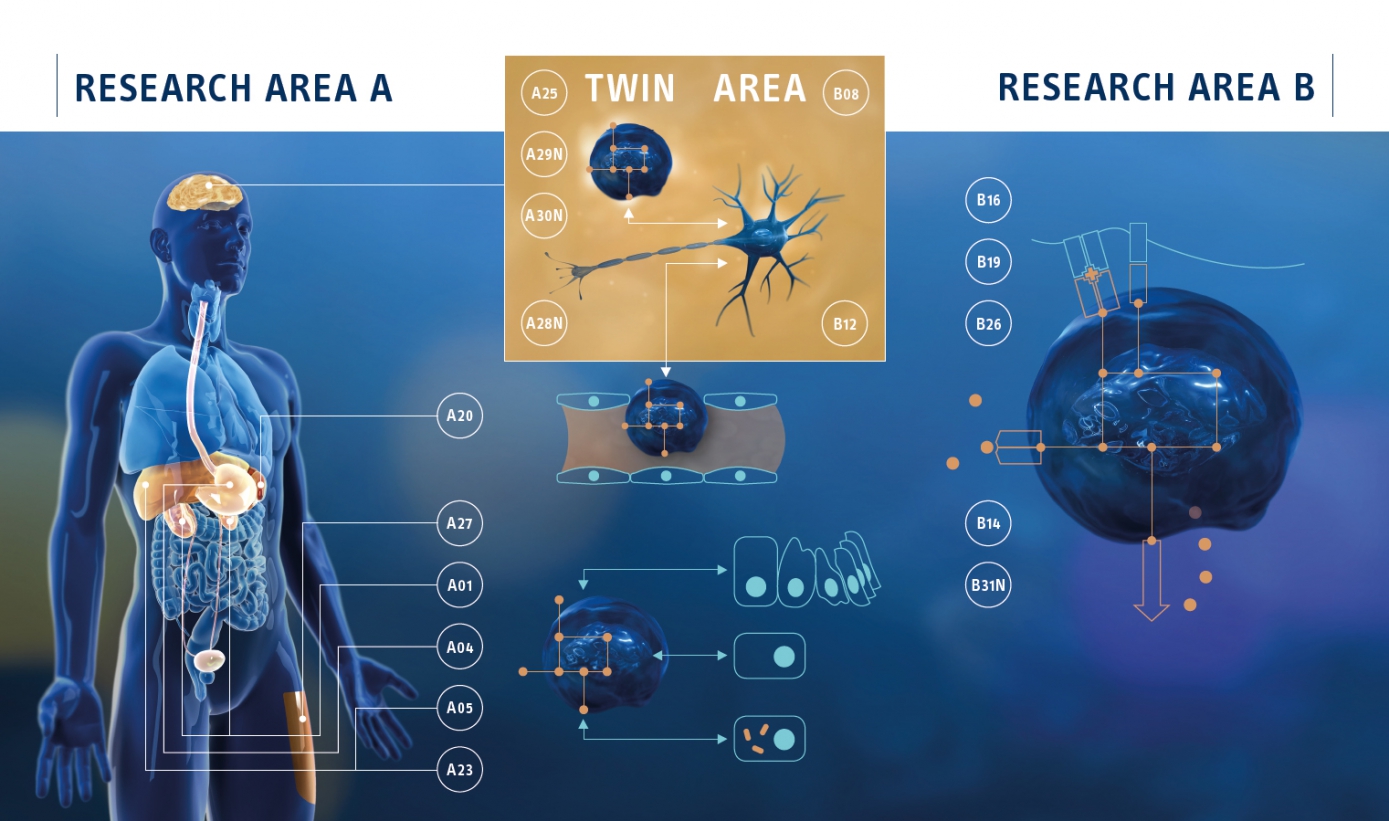Inter- and intracellular communication is necessary for the proper functioning of the immune system. Hence, assessing the question, how inter- and intracellular communication processes between immune cells are regulated on the molecular level is of central importance to understanding both physiological and pathophysiological immune reactions. These questions are being investigated in our Collaborative Research Centre 854.
During the defence against pathogens, cells of the innate and adaptive immune system (granulocytes, macrophages, mesangial cells, dendritic cells, T cells, B cells and epithelial cells) communicate with each other to prevent the expansion and spreading of pathogens such as bacteria, viruses or fungi. Alterations of cellular communication can cause immunological disorders, such as immunodeficiencies, autoimmune diseases or allergies. Furthermore, alterations of immune cell functions also impair the ability of the immune system to detect and to eliminate malignantly transformed cells. In addition, investigating the molecular mechanisms behind the cellular communication processes in the immune system will provide opportunities to develop new substances that can manipulate the immune system.






